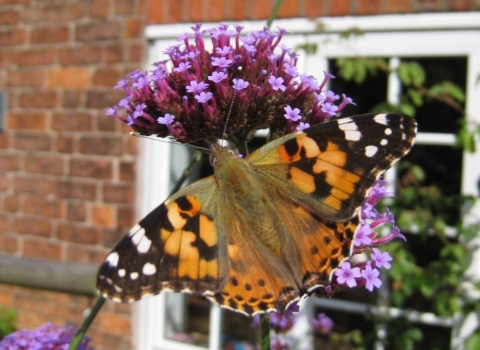Wildlife Gardening for Beginners: Growing Your Own
WildNet - Tom Marshall
Growing your own fruit and veg reduces your carbon footprint if done right, because less energy goes into producing your food. I knew very little about growing veg until I started to visit community gardens with a previous job, but I have, in recent years, pushed the boat out and grown tomatoes in growbags in my yard and I am hopeful for some basil and beans in pots outside my door this year. It seems obvious, and I don’t know why I didn’t really think this way before, but when researching, I found that essentially, growing veggies with wildlife in mind uses pretty much the same principles as organic farming. The aim is to find ways to maintain fertility and reduce pests, without resorting to chemicals
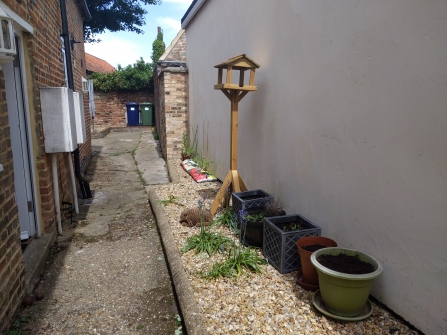
Becca's yard by Rebecca Neal
Crop rotation
A rotation of legumes, brassicas, potatoes and roots means that the same nutrients in the soil are not being depleted year after year and then requiring artificial fertilisers. It also reduces the risk of pest populations persisting.
Successional sowing
Successional sowing means having the same crop in an area, but sowing it at different times to reduce the attraction of the plot to pest species.
Companion planting
Companion planting simply means planting different species together for the benefit the target plant. It can help in a few ways:
- It spaces out plants of the same species, reducing the attraction to pests. For example, intercropping means sowing and harvesting a quick crop between a widely-spaced slower-growing crop, like early peas and autumn turnips, or lettuce before sprouts
- Some species might attract pollinators or pest predators, or deter pests (e.g.the smell of French marigolds deters whitefly from tomatoes, nasturtiums lure aphids from sprouts or beans and also attracts pest predators, and fennel attracts predatory hoverflies)

WildNet - Amy Lewis
Other tips
- Horse manure may contain worming medicines which might affect how long invertebrates take to break it down and release the nutrients. Compost it before using.
- Encourage birds, frogs and hedgehogs in your garden and they will help control your slugs and snails
- Use mulch and weed-barrier to keep weeds down
- Adapt what you grow. If your veggies don’t do well, try something else
- Lots of herbs are good for wildlife
- Sort fruit and fruit trees are great for wildlife if you are happy to share, you could let the bramble go in a wilder area or plant a crab apple tree
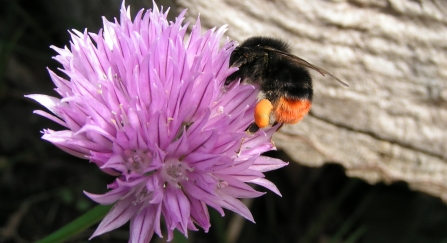
Red-tailed bumblebee on chives by Richard Burkmar
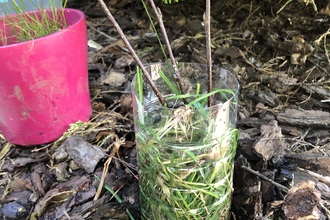
Homemade Hoverfly Lagoons
With the latest Wild About Gardens focus on hoverflies, Danielle Page talks us through how to create one particular habitat to tempt…
Community Garden Updates: December 2024
Find out all about what we've been up to at the Community Garden at Rushden Lakes this Autumn, including October Half Term and…
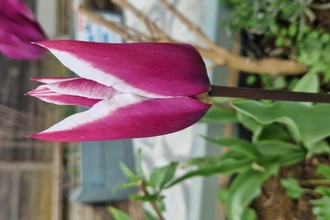
Community Garden Updates: May 2024
Supporter Engagement and Communities Officer, Viktoria, gives an update on our community garden at Rushden Lakes











